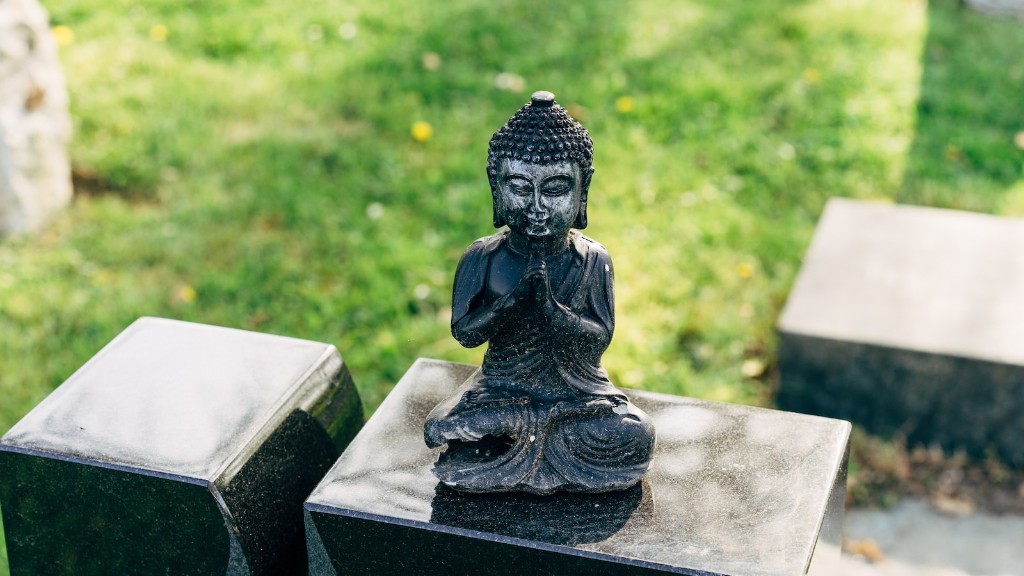Halloween is one of the most popular holidays celebrated in the United States and other countries around the world. It is often seen as a secular holiday, but some question whether it is actually part of Christianity. In this article, we will explore the relationship between Halloween and Christianity, outlining some of the arguments from experts in the field.
Halloween first became widely observed in the United States in the 19th century, as a secular holiday. The holiday’s popularity increased throughout the 20th century, as festivities included such activities as trick-or-treating and haunted houses. Most of the practices associated with Halloween are secular and non-religious in nature.
However, some critics argue that Halloween has its roots in Christianity, as it is thought to be derived from the Christian holiday, All Saints’ Day. All Saints’ Day commemorates all of the Christian saints, and is celebrated on November 1st. It has been observed since the 8th century, and it is thought that Halloween stems from this holiday.
Proponents of the argument that Halloween is part of Christianity point to the fact that the names of the days of the week still bear the names of pagan gods. They claim that All Saints’ Day is derived from the celebration of a Christian figure on the same date, suggesting that the Christian celebration preceded and influenced the pagan observance of the holiday.
However, others argue that the celebration of All Saints’ Day is derived from a pagan natural festival. This festival, often called Samhain, was celebrated on the last day of October, and typically involved rituals such as bonfires, animal sacrifice, and the lighting of candles. Some experts argue that All Saints’ Day and Samhain were both based on the same underlying principles, and that both All Saints’ Day and Halloween are part of a shared Pagan/Christian tradition.
Despite the debate, it seems that the celebration of Halloween is not necessarily part of Christianity. It is a popular holiday in the United States and other countries, and is largely a secular celebration. WhileAll Saints’ Day is a Christian holiday and is celebrated on the same date as Halloween, there is no evidence to suggest that Halloween is directly linked to Christianity, or that it is necessarily part of the Christian tradition.
The Cultural Impact Of Halloween
In recent years, Halloween has become an increasingly popular holiday, celebrated in a variety of ways throughout the world. This has been due in part to the rise of themed-product lines and media, such as Hollywood films, featuring the holiday. In addition, social changes and the globalization of Halloween have resulted in its emergence as a popular holiday.
The commercialization of Halloween has also had a major impact on its celebration. Halloween-related merchandise such as costumes, decorations, and candy has become increasingly popular, and has helped to drive the popularity of the holiday. Additionally, festivals and parties, often geared towards adults, have become more commonplace in recent years.
The rise of Halloween has also been associated with changes in society, including the emergence of new values and beliefs. It is often seen as a time for people to get together and celebrate life, and for children in particular it is a time for them to explore the supernatural or supernatural-themed experiences.
Overall, the cultural impact of Halloween is evident. Despite its contested connections to Christianity, Halloween has emerged as a popular holiday, celebrated in various ways around the world.
The Evolution Of Halloween Traditions
The traditions associated with Halloween have evolved over the years, in part due to the increasing popularity of the holiday. The activities associated with the holiday have changed and shifted, in some cases becoming more modern, and in other cases remaining more traditional.
One example is the tradition of trick-or-treating. This has been a popular activity since at least the 19th century, but has shifted in recent years. Trick-or-treating is now more common among children, and not just between adults, and it has become increasingly organized, with many cities and towns hosting official trick-or-treating events.
Additionally, the costumes worn on Halloween have changed over the years, becoming more elaborate and exaggerated. In the past, costumes were typically more traditional, while modern costumes are often more focused on pop culture or current trends. Costumes are also increasingly popular among adults, who usually opt for more humorous or outrageous designs.
Halloween decorations have also evolved over the years, becoming more elaborate and often more reflective of popular culture. In the past, decorations were typically limited to carved pumpkins, but now people increasingly decorate their homes or yards with anything from fake tombstones to elaborate light displays.
Overall, the traditions associated with Halloween have evolved over the years, reflecting changes in popular culture and societal values.
The Significance Of Halloween
The significance of Halloween varies depending on who is celebrating it. For some, it is simply a time of fun and frivolity, while for others it is a time of reflection and remembrance. Many interpretations exist of the spiritual and cultural meaning of Halloween.
One often cited meaning of Halloween is related to the idea of death and the afterlife. For example, some associate the day with remembering loved ones who have passed away. Others view it as a time to take stock of the past year, or to make plans for the new year that is to come. Additionally, some cultures believe that the veil between the living and dead is thinner on this day, allowing supernatural forces to be present.
Halloween also has a strong connection to the idea of renewal and transformation, with some claiming that it is a symbolic “turning of the wheel”, marking the end of summer and the beginning of winter.
Halloween also serves as an opportunity for creative expression, with the costumes, decorations, and parties all providing chances to be creative and express oneself.
Overall, the significance of Halloween varies from person to person. For some, it is a time of fun, leisure, and remembrance, while for others it is a time for spiritual reflection and transformation.
The Economic Impact Of Halloween
In addition to its cultural significance, Halloween has a significant economic impact. The holiday season is typically one of the busiest times of year for retailers, and Halloween is no exception. Expenditures on the holiday have increased significantly in recent years, with consumers spending billions of dollars on Halloween-related products each year.
The holiday has become increasingly commercialized, with stores dedicating significantly more floor space and promotional efforts to Halloween-related merchandise. Halloween costumes, decorations, and candy are among the most popular products purchased, with sales reaching billions of dollars in some years. The holiday has also seen growth in recent years in areas such as pet products, food, and party supplies.
In addition to direct retail spending, Halloween also has a significant impact on the economy in terms of indirect spending. This includes spending on restaurants, entertainers, costumers, and other services associated with the holiday. Additionally, the holiday has been associated with increased tourism, with travelers visiting destinations associated with the holiday for such activities as theme parks, haunted houses, and shopping trips.
Overall, Halloween is a significant economic driver, with billions of dollars being spent each year on holiday-related products and experiences. The holiday has seen significant growth in recent years, and is likely to continue to have a significant economic impact in the coming years.
Public Perception Of Halloween
The public perception of Halloween varies widely, with opinions often centered on the holiday’s religious or cultural heritage. A survey conducted in 2020 showed that while some respondents were neutral or even positive about Halloween, the majority of respondents were negative, citing concerns over its religious ties or questioning its moral implications.
Those who view Halloween favorably tend to associate it with Halloween’s traditional fun and playful activities, such as trick-or-treating, dressing up, and eating candy. On the other hand, those who view the holiday unfavorably often cite its purported ties to devil worship, satanism, or other dark practices. They also often point to the potential dangers associated with children participating in night-time activities.
In addition to religious beliefs, other concerns sometimes voiced about Halloween include the increasing commercialization of the holiday, its growing focus on adult-centered activities and costumes, and the lack of religious symbolism in modern celebrations.
Overall, public opinion of Halloween is mixed, with opinions varying depending on a person’s cultural, spiritual, or moral beliefs.
Conclusion
Halloween is one of the most popular holidays in the United States and other countries. Its relationship to Christianity is debated, with some claiming that it is a Christian holiday and others arguing that it is a secular celebration. In any case, its cultural and economic impact is evident, with billions of dollars being spent each year on products related to the holiday.
The public perception of Halloween also varies, with many people having both positive and negative associations with the holiday. Ultimately, while the connections between Halloween and Christianity are debated, it is clear that the holiday is an important part of the cultural and economic landscape of many countries.


